
Journal Menu
► ▼ Journal Menu-
- Remote Sensing Home
- Aims & Scope
- Editorial Board
- Reviewer Board
- Topical Advisory Panel
- Photography Exhibition
- Instructions for Authors
- Special Issues
- Topics
- Sections & Collections
- Article Processing Charge
- Indexing & Archiving
- Editor’s Choice Articles
- Most Cited & Viewed
- Journal Statistics
- Journal History
- Journal Awards
- Society Collaborations
- Conferences
- Editorial Office
Journal Browser
► ▼ Journal BrowserNeed Help?
Announcements
29 September 2024
MDPI New Journal Proposal—Invitation to Shape the Future of Open Science Together

As a leader in open access publishing, MDPI is eager to explore new collaboration opportunities, including the launch of new journals and the transfer of existing ones. At present, MDPI publishes over 400 journals, more than 160 of which have established partnerships with academic organizations. Additionally, we publish 19 association journals.
In order to enhance exchange and cooperation with scientific researchers and share the results of open science, MDPI invites experts and scholars from various fields to submit proposals for new journal collaboration opportunities. If your proposal is approved, you could take on the role of Editor-in-Chief, Deputy Editor-in-Chief, or Editorial Board Member of the journal. This position allows you to manage the manuscript review process alongside our editorial department, participate in calls for papers, strengthen your network with scholars in the field, expand scientific research cooperation, enhance your personal and academic influence internationally, and play a leading role in academia.
Once the new journal is online, MDPI will provide a variety of promotional channels to market the journal internationally.
MDPI will offer various promotional channels to enhance its visibility and promote it internationally.
How can you determine the theme of a new journal?
- Assess research hotspots/academic frontiers;
- Assess pioneers in the field/key research directions of universities;
- Determine whether MDPI has already established a journal in the field.
You can browse MDPI’s existing journals at the following link: https://www.mdpi.com/about/journals.
Advantages of collaborating with MDPI:
- MDPI is a global leader in open-access publishing with extensive academic resources.
- MDPI offers a professional publishing team that provides comprehensive support throughout the publishing process.
- MDPI’s diverse promotional platforms and channels help journals quickly increase their international visibility and influence.
We invite you to submit new journal proposal here, and contribute to academic development! In addition, if your institution (university, institute, college, national key laboratory, society, etc.) intends to establish a journal, you can also submit a draft to MDPI on its behalf.
27 September 2024
MDPI’s 2023 Travel Awards—Winners Announced

MDPI journals frequently grant travel awards to empower junior researchers to showcase their latest research at academic conferences, thereby amplifying their impact within their research fields.
We extend our heartfelt congratulations to the 103 recipients of MDPI's 2023 Travel Awards from different countries and territories for their exceptional presentations. These outstanding individuals were selected by the journal editors based on the strength of their research proposals and the anticipated impact of their presentations at academic conferences. We commend their exceptional contributions and wish them continued success in their academic endeavors.
MDPI will continue to provide support and recognition to the academic community. To learn more about the list of awardees, please visit the following pages:
- Biology and Life Sciences;
- Chemistry and Materials Sciences;
- Engineering;
- Environmental and Earth Sciences;
- Medicine and Pharmacology;
- Public Health and Healthcare;
- Others.
About MDPI Awards:
To reward the academic community, especially young researchers, and enhance communication among scientists, MDPI journals regularly offer various awards to researchers in specific fields. These awards, serving as a source of inspiration and recognition, help raise the influence of talented individuals who have been credited with outstanding achievements and are making a significant contribution to the advancement of their fields.
To explore more MDPI awards, please click here.
23 September 2024
Meet Us at the American Geophysical Union (AGU) Fall Meeting 2024, 9–13 December 2024, Washington, D.C., USA

Conference: American Geophysical Union (AGU) Fall Meeting 2024
Date: 9–13 December 2024
Location: Washington, D.C., USA
MDPI will be attending the American Geophysical Union (AGU) Fall Meeting 2024, which will be held from 9 to 13 December 2024 in Washington, D.C., USA.
AGU’s annual meeting, the largest gathering of Earth and space scientists, convenes 25,000+ attendees from 100+ countries to share research and connect with friends and colleagues. Scientists, educators, policymakers, journalists and communicators attend AGU24 to better understand our planet and environment, opening pathways to discovery, generating greater awareness to address climate change, driving greater collaborations to lead to solutions and opening the fields and professions of science to a whole new age of justice equity, diversity, inclusion and belonging.
The following MDPI journals will be represented at the conference:
- Water;
- Remote Sensing;
- Atmosphere;
- Sustainability;
- Geosciences;
- Land;
- Minerals;
- Earth;
- Fire;
- IJGI;
- Hydrology;
- Geomatics;
- Drones;
- GeoHazards.
If you are planning to attend the conference, we encourage you to visit our booth and speak to our representatives. We are eager to meet you in person and assist you with any queries that you may have. For more information about the conference, please visit the official website at https://www.agu.org/annual-meeting.
12 September 2024
Meet Us at the 2024 China Geography Conference, 26–28 September 2024, Nanjing, China

MDPI will be attending the 2024 China Geography Conference in Nanjing, China, which will take place from 26 to 28 September 2024. The conference will focus on the theme of “Development and Innovation of Chinese Geography”, review the theory and practice of Chinese geography, summarize the latest achievements in geographical theory, methods, technology, and application in recent years, and discuss important scientific issues such as China’s geography and ecological environment, resource utilization, and sustainable development under global changes and new development patterns. Discussing the innovation of geography in the new era, promoting the overall improvement of the teaching and research level of Chinese geography, and serving the latest needs of national economic and social development in the new era are also a focus of the conference. If you are attending the conference, please visit our booth; our delegates look forward to meeting you in person and answering any questions you may have.
The following MDPI journals will be represented at the conference:
- Land (leading);
- Quaternary (leading);
- Remote Sensing;
- Geographies;
- IJGI;
- Hydrology;
- Sustainability;
- Earth.
11 September 2024
MDPI’s 2023 Best PhD Thesis Awards—Winners Announced

MDPI’s Best PhD Thesis Awards are granted to promising young scholars whose PhD theses are deemed exceptional within their respective research fields. These awards aim to encourage young scholars to continue their outstanding accomplishments and further contribute to their field.
We extend our heartfelt congratulations to the 54 winners of the 2023 Best PhD Thesis Awards and wish them success with their future research endeavors.
MDPI will continue to provide support and recognition to the academic community. To learn more about all the awardees and their research projects in your field of study, please visit the following pages:
About MDPI Awards:
To reward the academic community, especially young researchers, and enhance communication among scientists, MDPI journals regularly offer various awards to researchers in specific fields. These awards, serving as a source of inspiration and recognition, help raise the influence of talented individuals who have been credited with outstanding achievements and are making a significant contribution to the advancement of their fields.
To explore more MDPI awards, please click here.
3 September 2024
MDPI INSIGHTS: The CEO's Letter #15 - CHORUS, Best Paper Award, August Events

Welcome to the MDPI Insights: The CEO's Letter.
In these monthly letters, I will showcase two key aspects of our work at MDPI: our commitment to empowering researchers and our determination to facilitating open scientific exchange.
Opening Thoughts

I am pleased to share that MDPI is now an Affiliate Member of CHORUS, a not-for-profit organization dedicated to ensuring public access to articles reporting on U.S. government-funded research. This partnership highlights our long-standing commitment to advancing Open Access (OA) publishing and meeting funders’ open research requirements.
Read the full announcement here.
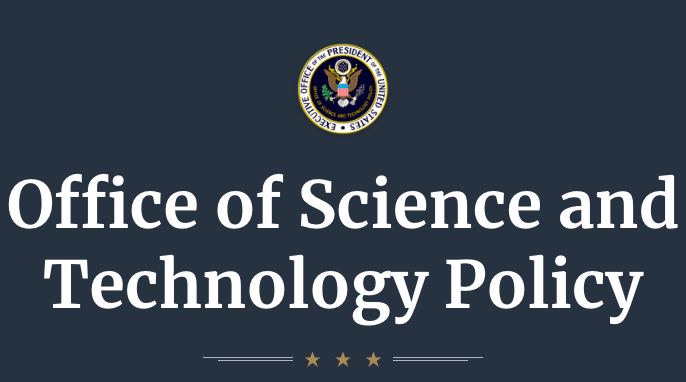
With the White House Office of Science and Technology Policy (OSTP) 2022 memorandum calling for immediate public access to all federally funded research by 2026, this partnership positions MDPI to further support academic institutions in adhering to national mandates while providing authors with fully compliant (CC-BY) OA journals.
The CHORUS platform went live in July 2014 and includes NASA, the U.S. Department of Energy, the U.S. Department of Defense, the U.S. Geological Survey, and the National Science Foundation.
“This partnership positions MDPI to further support academic institutions in adhering to national mandates”
Joining CHORUS perfectly aligns our mission as the leading OA publisher, which is to drive transparency and innovation in scholarly publishing, with that of CHORUS itself, which is to advance Open Access research. It will also support MDPI publications from organizations such as NASA, with 1,200 research papers published by NASA-affiliated authors as at 31 August 2024.
Impactful Research
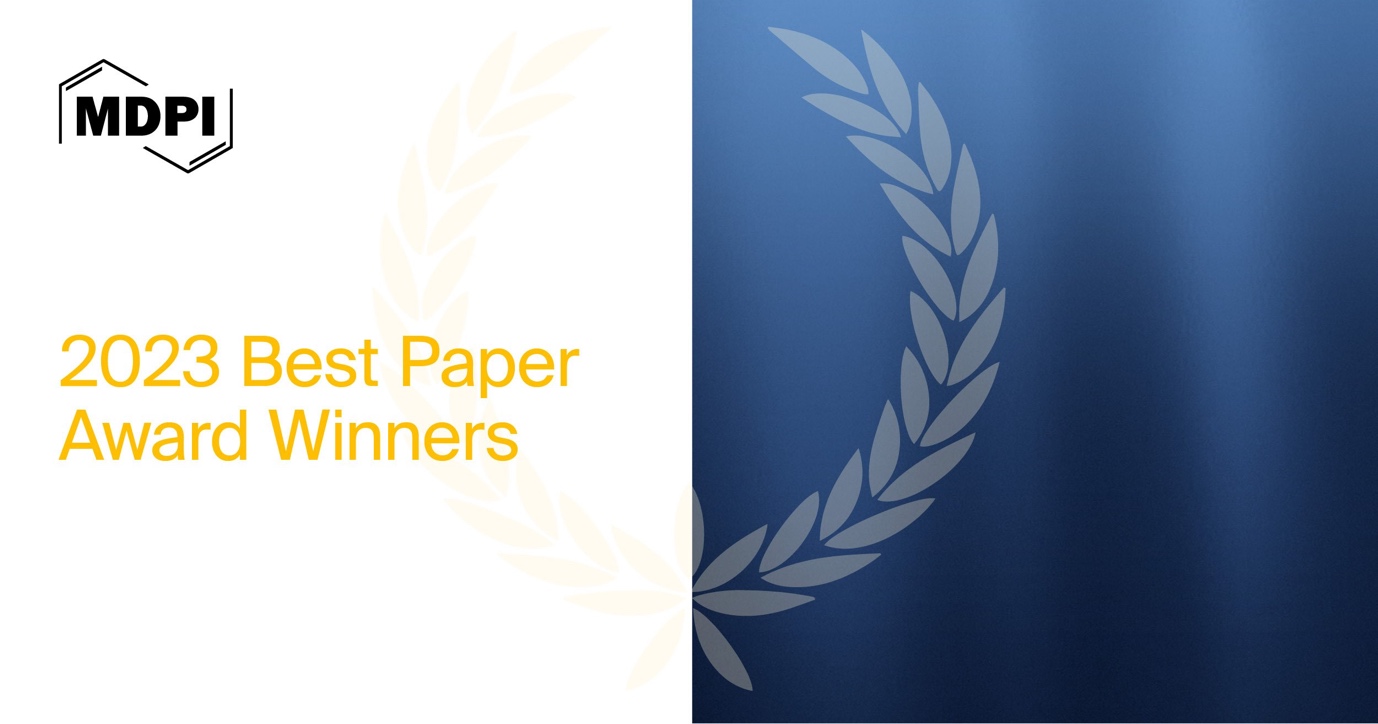
MDPI’s Best Paper Awards—Award-Winning Papers in 2023 Announced
MDPI is committed to supporting and recognizing the academic community and is proud to announce the recipients of the 2023 Best Paper Awards, which recognize high-quality papers of significant scientific merit and impact. Each year, the editors of our journals carefully select papers that showcase outstanding scientific achievement.
This year, 115 Best Paper Awards were presented, chosen from 346 exceptional papers in a highly competitive selection process. Congratulations to the authors for their remarkable contributions!
To learn more about all the awardees and their research projects, visit the following pages:
- Biology and Life Sciences
- Business and Economics
- Chemistry and Materials Sciences
- Computer Sciences and Mathematics
- Engineering
- Environmental and Earth Sciences
- Medicine and Pharmacology
- Public Health and Healthcare
- Social Sciences, Arts and Humanities
- Physical Sciences
About MDPI Awards
MDPI regularly offers various awards to recognize researchers, particularly young scientists, and to promote communication within the scientific community. These awards exist to inspire and acknowledge talented scientists who have made significant contributions to advancing their fields.
To find out more MDPI awards, please click here.
“Our awards exist to inspire and acknowledge talented scientists”
Inside MDPI

MDPI AI Team Presented at EuroSciPy 2024 in Poland
As part of the CEO Letter, I hold dear this ‘Inside MDPI’ section, where I have an opportunity to highlight various projects, teams and updates within our organization. As such, I’m happy to showcase the following presentations from members of MDPI’s Artificial Intelligence (AI) team, which were recently presented at the EuroSciPy 2024 (16th European Conference on Python in Science). This conference took place in Szczecin, Poland from 26–30 August.
“This event was a great opportunity to reinforce our commitment to innovation and excellence in publishing”
MDPI colleagues Frank Sauerburger (AI Tech Leader) and Daniele Raimondi (Senior Data Scientist) both presented at the conference. Frank discussed MDPI’s AI infrastructure, while Daniele showcased a new methodological approach we have been developing to track the journey of rejected academic manuscripts. This approach combines AI, data science and analytics to improve the identification of manuscripts and authors, enhancing our understanding of publishing dynamics.
This event was a great opportunity to reinforce our commitment to innovation and excellence in publishing. It also allowed us to contribute to the academic discussion on integrating AI and data science into scholarly communication.
From data analysis in Jupyter Notebooks to production applications: AI infrastructure at reasonable scale – Frank Sauerburger
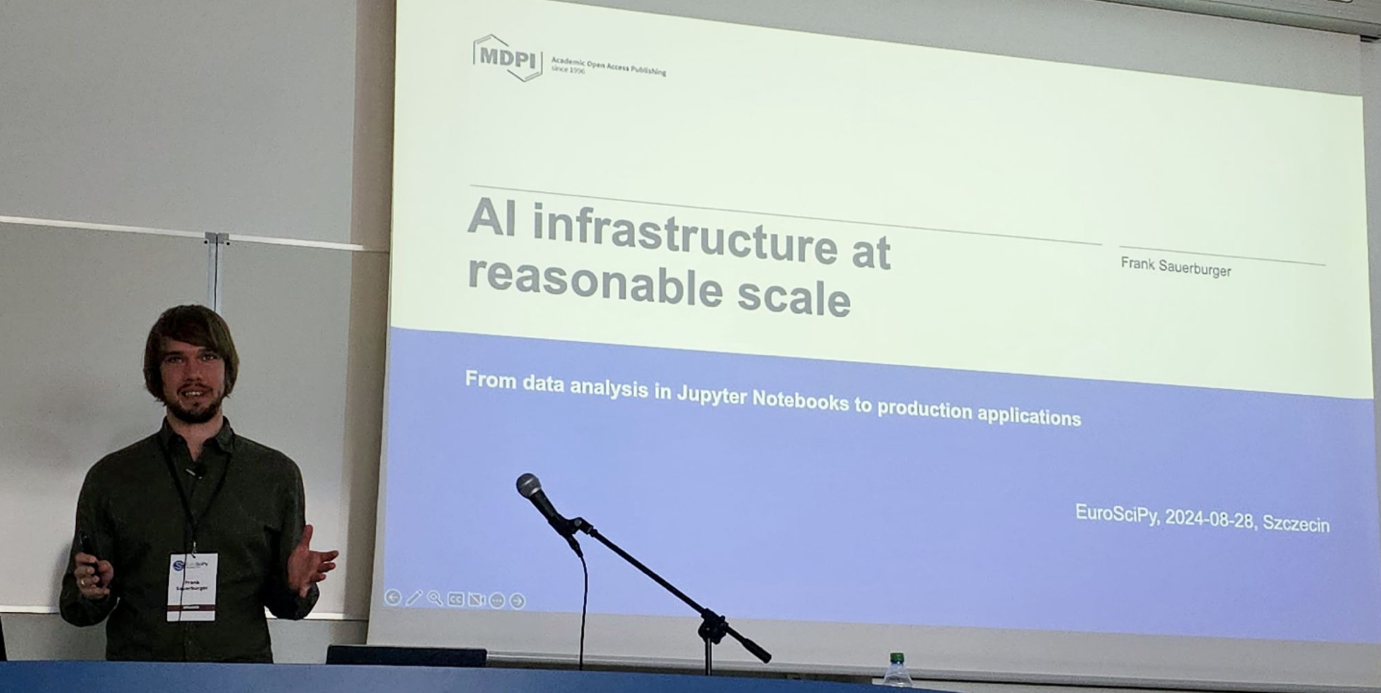
Frank’s presentation on MDPI’s AI infrastructure provided a chance to showcase the advanced technological frameworks that power our operations. Given the technical and academic focus of EuroSciPy, this talk demonstrated how MDPI’s AI capabilities are not only cutting-edge but also central to driving efficiency and innovation in scholarly publishing. Engaging with the EuroSciPy community helps position MDPI as a leader in applying AI within the publishing industry, fostering potential collaborations and attracting interest from top researchers.
A Qdrant and Specter2 framework for tracking resubmissions of rejected manuscripts in academia – Daniele Raimondi
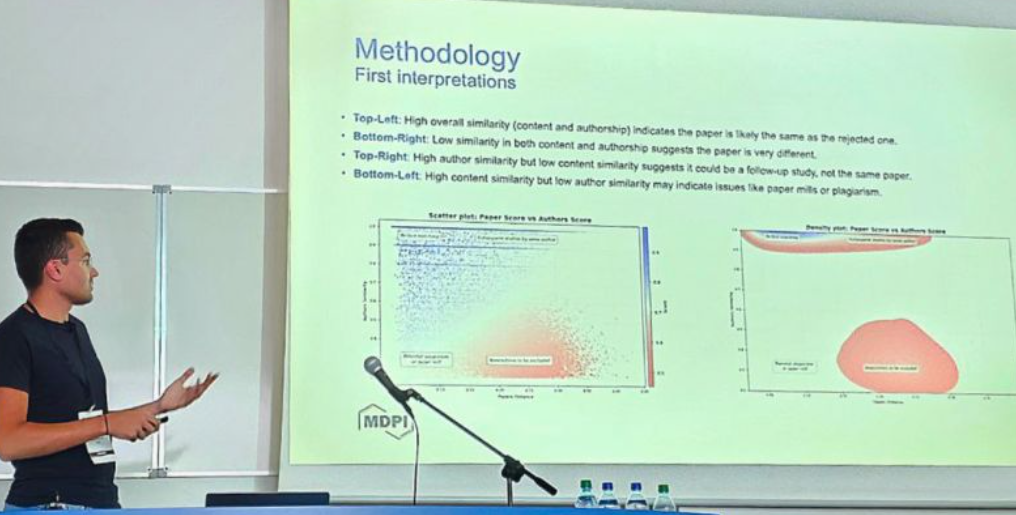
Daniele’s talk on the novel methodological approach that combines AI, Data Science, and Analytics was crucial in highlighting how MDPI is advancing the precision and effectiveness of manuscript and author identification. This approach is pivotal in enhancing our understanding of publishing dynamics and ensuring the quality and integrity of the academic content we manage. By presenting at EuroSciPy, we had the opportunity to engage with an audience deeply involved in scientific computing, gaining feedback and insights that could further refine our methodologies.
Thank you, Frank and Daniele, for representing MDPI so well!
I will share more about MDPI’s AI team and projects in upcoming CEO Letters, as we have a well-rounded AI and Data Team working on an exciting suite of AI products for MDPI and the scholarly community at large.
Coming Together for Science
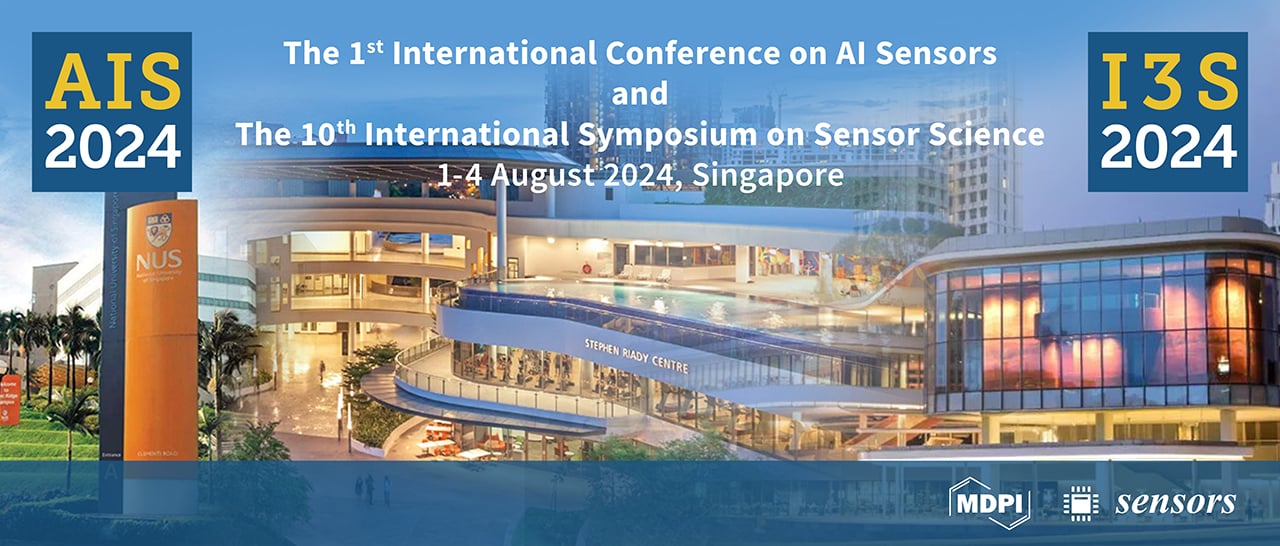
The 1st International Conference on AI Sensors & The 10th International Symposium on Sensor Science
I am pleased to share the success of our MDPI conference The 1st International Conference on Artificial Intelligence (AI) Sensors and the 10th International Symposium on Sensor Science in Singapore this past 1–4 August.
With nearly 400 attendees, the event brought together researchers and industry experts from China, Singapore, Japan, Korea, Taiwan, India and other countries to share their findings on the latest developments in sensors, sensing technology, artificial intelligence for sensing applications and AI-enhanced sensing systems.
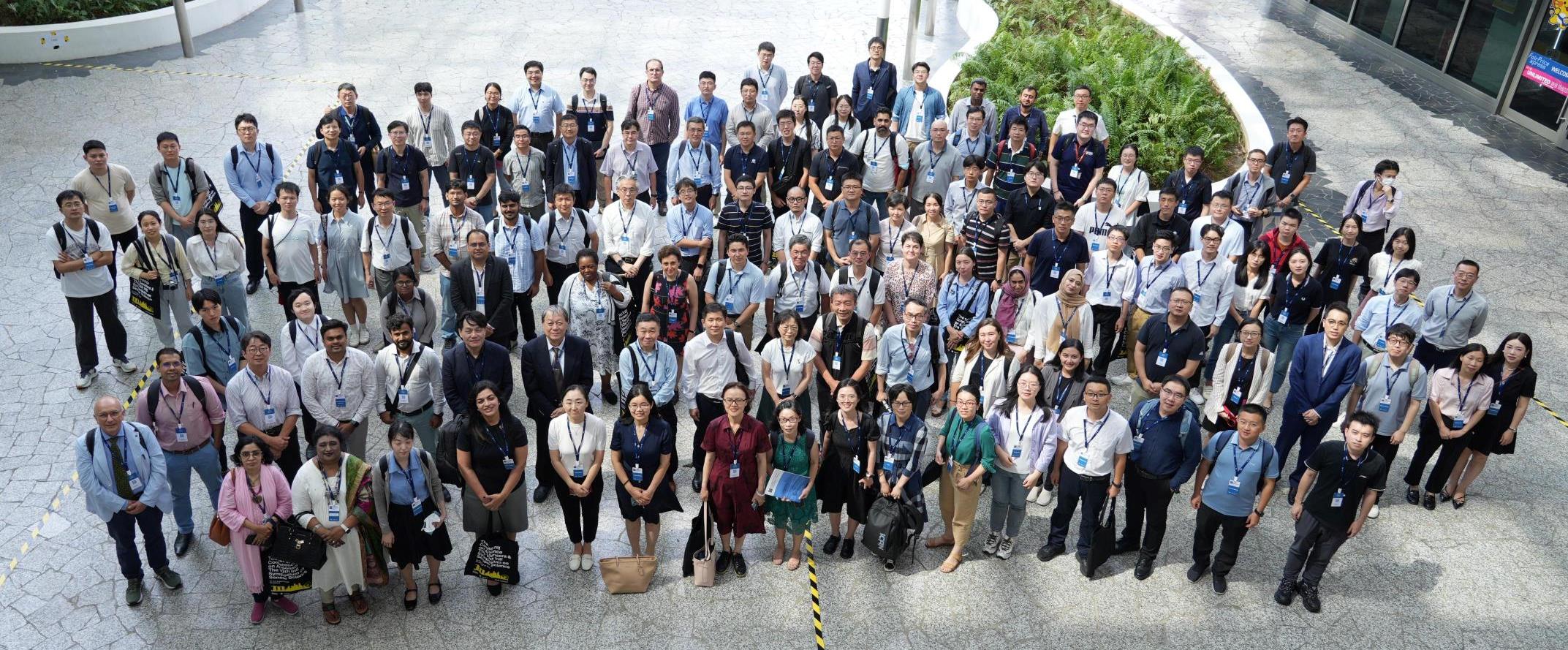
We accepted a total of 355 abstracts, featuring 772 authors from 28 countries. Over the course of the four-day event, 66 posters were displayed and 296 talks were delivered, including 4 plenary talks, 46 keynote speeches, 122 invited talks, and 124 selected oral presentations. View the event gallery here.
I am pleased to announce the winners of the four awards, including Best Presentation and Best Poster, recognizing the contributions of our participants during the conference.
Looking ahead, the 2nd International Conference on AI Sensors and Transducers is scheduled to take place from 29 July to 5 August, 2025, in Bangkok, Thailand.
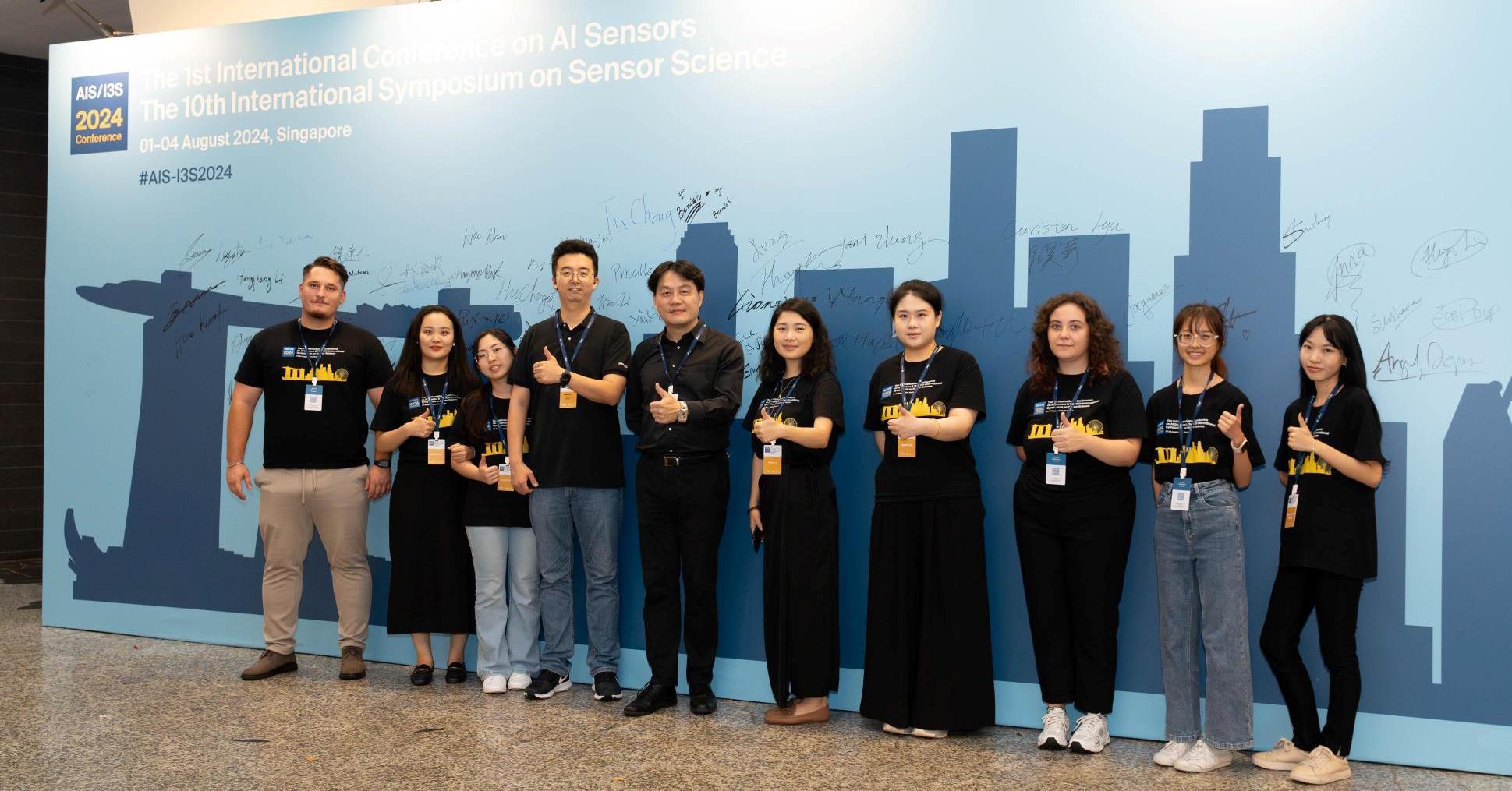
Thank you to our Conference team, including Ionut Spatar, Teodora Nicoleta Cremene, Ang Kai Lin, Benjamin Tay, Leong Jin Yue Esther, Wong Jolin, Judith Wu, Alethea Liu and Flora Li, who were involved in making this event a success. A big thank-you also goes to our local MDPI colleagues for their support: Yu Nwe Soe, Hen Chu Yang, Kwah Zhi En Watcharapong, Zephan Yang, Daphne Neo, Huimin Cheng, Nathan Li and Ting Yin.
Upcoming In-Person Event
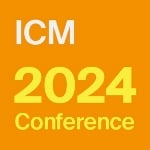
25–27 September, 2024
The 5th International Conference on Materials: Advances in Material Innovation
Location: Basel, Switzerland
ICM 2024 will unite experts to share insights on recent advancements in Materials Characterization, Processing and Manufacturing.
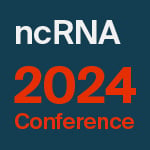
7–9 October, 2024
Non-coding RNA World 2024: Exploring Mechanisms, Designing Medicines
Location: Basel, Switzerland
ncRNA 2024 will explore the latest advances in the field, covering topics from basic biology to medical and technological applications.
Find more upcoming MDPI events here.
Closing Thoughts

The 2nd Sustainable Publishing Forum
In 2022, the International Association of Scientific, Technical and Medical Publishers (STM) outlined three goals to reflect the academic community’s shared aspirations: promoting Open Science, maintaining research integrity and fulfilling social responsibility. Open Science has evolved from the Open Access movement of the early 2000s to become a preferred model in academic publishing. Publishers and academic journals play a crucial role in ensuring research integrity, with efforts to prevent misconduct markedly on the increase now.
As the world faces sustainability challenges, the academic publishing industry is increasingly committed to contributing the achievement of the United Nations Sustainable Development Goals (SDGs). Many publishers are implementing strategies to support these objectives, including ours, which you can view here.
The 2nd MDPI Sustainable Publishing Forum provided a platform for global editors and publishers to discuss these themes, aiming to strengthen collaboration and advance the contributions that scientific publishing can make to academia and society.
“Open Science has evolved to become a preferred model in academic publishing”
The 2nd Sustainable Publishing Forum
We hosted MDPI’s 2nd Sustainable Publishing Forum in Beijing, China, on 15–16 August, attracting nearly 120 attendees from local and international publishers, university presses, scientific and technical journal associations, libraries and the Chinese Academy of Sciences. The event focused on promoting Open Science, maintaining research integrity, and fulfilling social responsibility.
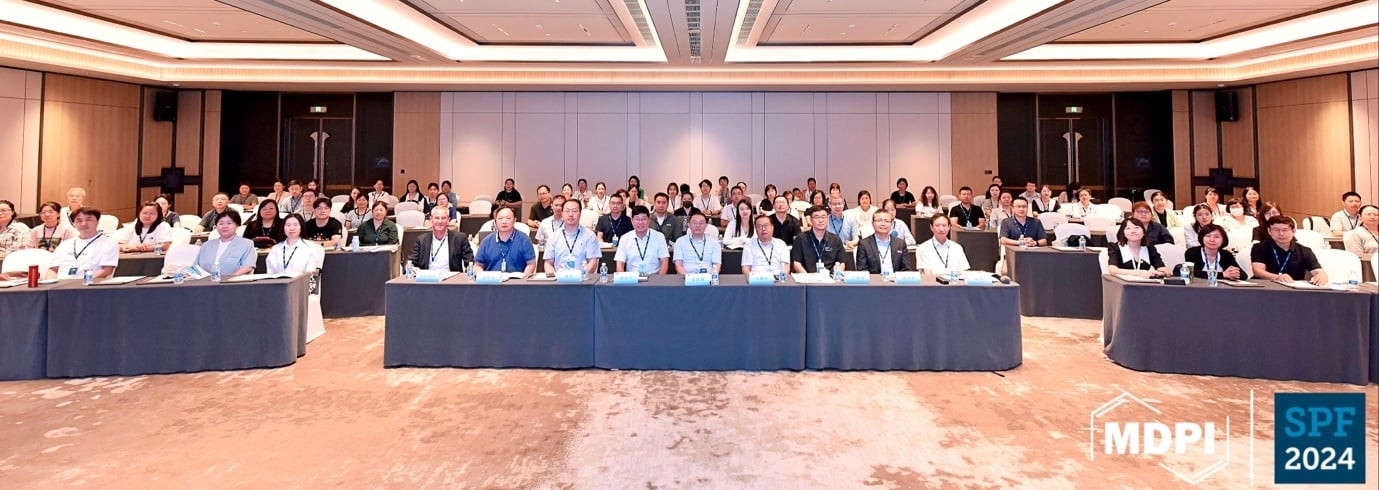
This was an excellent opportunity for us to share more with conference attendees about the approach of our research integrity team. Our Head of Publishing, Peter Roth, also participated, speaking on how to identify and avoid predatory publishers and about the principles that underpin ethical academic publishing.
I extend my thanks to all of our conference speakers, including Hylke Koers (STM Solutions), who presented on STM Trends 2028 and shared insights on the STM Integrity Hub, of which MDPI is a member.
Chief Executive Officer
MDPI AG
3 September 2024
Prof. Massimiliano Pieraccini Appointed Section Editor-in-Chief of Section “Engineering Remote Sensing” in Remote Sensing
Remote Sensing (ISSN: 2072-4292) is proud to announce a new chapter in its editorial journey. As we bid farewell to our esteemed former Editor-in-Chief for the “Remote Sensing of Engineering” Section, Prof. Mattia Crespi, whose visionary leadership and dedication have been pivotal to our growth, we extend our deepest gratitude for his service.
We are very pleased to welcome Prof. Massimiliano Pieraccini as the journal’s new Section Editor-in-Chief, as of 5 of July 2024. In addition to his role, he works as a full professor and as the President of the School of Electronic Engineering at the University of Florence, Italy. He is the holder of several patents and was the recipient of the Nello Carrara Degree Prize. His research primarily covers the applications and techniques of synthetic aperture radar and ground-penetrating radar, and he has published over 100 articles in peer-reviewed journals.

Name: Prof. Massimiliano Pieraccini
Affiliation: Department of Information Engineering (DINFO), University of Florence, Via Santa Marta, Firenze, Italy
Keywords: radar imaging; synthetic aperture radar; electromagnetics; RF engineering; antennas and propagation; remote sensing; telecommunications engineering; radar signal processing; SAR interferometry; electrical and electronics engineering
We are confident that under Prof. Massimiliano Pieraccini's guidance, our Section will continue to set the standard for excellence in engineering remote sensing, fostering intellectual discourse and innovation within our community.
The following is a Q&A with Prof. Massimiliano Pieraccini, who shared his vision for the journal with us, as well as his views of the research area and open access publishing:
1. What appealed to you about the journal that made you want to take on the role of Section Editor-in-Chief?
It is one of the journals closer to my research activity and its ranking is rather good.
2. What is your vision for the journal?
Remote sensing is a discipline that was born with satellite or airborne data and this should remain its focus. Nevertheless, new platforms are emerging and they are becoming increasingly important: unmanned aerial systems and ground-based systems. The journal should place a suitable emphasis to these topics.
3. What does the future of this field of research look like?
Artificial intelligence and unmanned aerial systems will have a disruptive impact in this field.
4. What do you think of the development of open access in the publishing field?
Open access is mandatory for all research results obtained with public funds in Europe. This gives a great impulse to this publication modality.
We look forward to working with Prof. Massimiliano Pieraccini and welcoming him to the journal!
26 August 2024
Meet Us at the 18th European Conference on Computer Vision, 29 September–4 October 2024, Milano, Italy

MDPI will be attending the 18th European Conference on Computer Vision (ECCV 2024) in MiCo Milano, Italy, which will take place from 29 September to 4 October 2024. The European Conference on Computer Vision (ECCV) is a premier biennial research conference in Computer Vision and Machine Learning, managed by the European Computer Vision Association (ECVA). It is held on even years and gathers the scientific and industrial communities within these areas. The first ECCV was held in 1990 in Antibes, France, and the conference has subsequently been organized all over Europe.
The following MDPI journals will be represented:
- Applied Sciences;
- Electronics;
- AI;
- Future Internet;
- Inventions;
- Journal of Imaging;
- Machine Learning and Knowledge Extraction;
- Mathematics;
- Remote Sensing;
- Technologies.
If you are attending the conference, please visit our booth. Our delegates look forward to meeting you in person and answering any questions that you may have. For more information about the conference, please visit the following link: https://eccv.ecva.net/.
19 August 2024
MDPI’s 2023 Young Investigator Awards—Winners Announced

MDPI’s Young Investigator Awards recognize promising early career scientists, acknowledge their contributions, and foster collaboration within the scientific community. We are proud to announce the recipients for 2023, who were carefully selected by the journals’ esteemed Award Evaluation Committee.
We extend our heartfelt congratulations to the 79 winners of MDPI’s 2023 Young Investigator Awards for their excellent contributions in their research field. We look forward to seeing these rising stars continue to contribute to the advancement of science.
MDPI will continue to support and recognize the academic community. To explore details about the awardees by field, please visit the individual pages listed below:
Congratulations to all the winners for their exceptional contributions and dedication to advancing scientific research.
About MDPI Awards:
To support the academic community, particularly young researchers, and to enhance communication among scientists, MDPI journals regularly offer various awards to researchers in specific fields. These awards, serving as a source of inspiration and recognition, help to elevate the profiles of talented individuals who have made outstanding achievements and are making significant contributions to advancements in their respective fields.
To find out more about MDPI awards, please click here.
14 August 2024
Topics Webinar | Drones for Rural Development II, 19 September 2024

In recent years, the utilization of drones has increased globally, with fresh applications and uses continually emerging. In remote, rural regions, drones have the potential to perform a wide range of tasks, including surveillance via cameras or other sensors; this enables them to act as mobile gateways and provide connectivity or facilitate the transportation of goods to challenging, remote locations. While many of these applications are closely associated with primary sector activities such as agriculture and livestock, their adaptability extends to various other industries and urban areas.
This webinar will present three referent European projects associated with the development of rural areas, and it will use drones as the main thread. The scope of drone utilization in rural regions is extensive, spanning sectors such as agriculture, forestry, livestock, other industrial domains, environmental monitoring, and the assessment of water quality in rivers and lakes. Drones also play a vital role in firefighting efforts and provide assistance to the population, particularly elderly individuals.
We are privileged to feature recognized industry and academic experts who will share their experiences and insights regarding the effective leveraging of these technologies to achieve enhanced results and elevate the productivity of drones. So, whether you are a researcher, applied scientist, commercial drone user, or simply interested in the development of drones, we invite you to join us for this webinar.
Additionally, CHAMELEON, ICAERUS and SPADE are the organizations working with us for this webinar. Kindly find more information about the organizations below:
- CHAMELEON is a Horizon Europe Project that aims to optimize production and identify potential problems in agriculture, livestock, forestry and rural areas. For more information, kindly visit https://chameleon-heu.eu;
- ICAERUS is an EU-funded project that aspires to advance the use of drones in agricultural production, forestry and rural communities. For more information, kindly visit https://icaerus.eu/;
- SPADE is a project funded by the European Union within the Horizon Europe program, with 21 partners from 10 European countries. For more information, kindly visit https://spade-horizon.eu/.
Date: 19 September 2024 at 02.00 p.m. CEST | 8:00 a.m. EDT | 8:00 p.m. CST Asia
Webinar ID: 892 0367 9034
Webinar Announcement: https://sciforum.net/event/Topics-26
Register now for free!
|
Speaker/Presentation |
Time in CEST |
Time in EDT |
|
Prof. Dr. Diego González-Aguilera & Dr. Pablo Rodríguez-Gonzálvez |
2:00–2:10 p.m. |
8:00–8:10 a.m. |
|
Dr. David Sánchez-Jiménez |
2:10–2:30 p.m. |
8:10–8:30 a.m. |
|
Q&A Session |
2:30–2:35 p.m. |
8:30–8:35 a.m. |
|
Dr. Costas T. Davarakis |
2:35–2:55 p.m. |
8:35–8:55 a.m. |
|
Q&A Session |
2:55–3:00 p.m. |
8:55–9:00 a.m. |
|
Dr. Vasilis Psiroukis & Ms. Esther Vera Moreno |
3:00–3:20 p.m. |
9:00–9:20 a.m. |
|
Q&A Session |
3:20–3:25 p.m. |
9:20–9:25 a.m. |
|
Prof. Dr. Diego González-Aguilera & Dr. Pablo Rodríguez-Gonzálvez |
3:25–3:30 p.m. |
9:25–9:30 a.m. |
After registering, you will receive a confirmation email containing information about joining the webinar. Registrations with academic institutional email addresses will be prioritized.
Unable to attend? Register anyway and we will let you know when the recording is available.
Webinar Chairs and Keynote Speakers:
- Prof. Dr. Diego González-Aguilera (Chair), Cartographic and Land Engineering Department, Higher Polytechnic School of Avila, University of Salamanca, Hornos Caleros, Avila, Spain;
- Prof. Dr. Pablo Rodríguez-Gonzálvez (Chair), Department of Mining Technology, Topography and Structures, University of León, Avda. Astorga, Ponferrada, Spain;
- Dr. David Sánchez-Jiménez, Departamento de Ingeniería Cartográfica y del Terreno, Universidad de Salamanca, Spain;
- Dr. Costas T. Davarakis, Nydor System Technologies AE, Athens, Greece;
- Dr. Vasilis Psiroukis, Agricultural University of Athens, Athens, Greece;
- Ms. Esther Vera Moreno, Noumena, Gran Via de les Corts Catalanes 690, Barcelona, Spain.
Relevant Special Issues:
“Aerial and Drone LiDAR Data for Geomorphological Mapping, Landform Extraction and Landscape Evolution”
Guest Editors: Dr. Dario Gioia, Dr. Nicodemo Abate, Dr. Giuseppe Corrado, Dr. Antonio Minervino Amodio and Prof. Marcello Schiattarella
Deadline for manuscript submissions: 15 September 2024
“UAV Agricultural Management: Recent Advances and Future Prospects”
Guest Editors: Dr. Hamdi Zurqani and Dr. Alessandro Matese
Deadline for manuscript submissions: 25 December 2024
“Geographic Information Technologies and the New Challenges of Globalization in a Changing Environment”
Guest Editors: Prof. Dr. Ana Nieto Masot, Prof. Dr. Gema Cárdenas and Dr. José A. Gutiérrez Gallego
Deadline for manuscript submissions: 20 December 2024
“Spatial Information for Improved Living Spaces”
Guest Editors: Dr. Ivana Ivánová, Dr. Yongze Song and Prof. Dr. Sisi Zlatanova
Deadline for manuscript submissions: 25 October 2025
Relevant Papers:
“Small Unmanned Aircraft Systems and Agro-Terrestrial Surveys Comparison for Generating Digital Elevation Surfaces for Irrigation and Precision Grading”
by Richard A. Pickett, John W. Nowlin, Ahmed A. Hashem, Michele L. Reba, Joseph H. Massey and Scott Alsbrook
Drones 2023, 7(11), 649; https://doi.org/10.3390/drones7110649
Available online: https://www.mdpi.com/2504-446X/7/11/649
“Recent Advances in Crop Disease Detection Using UAV and Deep Learning Techniques”
by Tej Bahadur Shahi, Cheng-Yuan Xu, Arjun Neupane and William Guo
Remote Sens. 2023, 15(9), 2450; https://doi.org/10.3390/rs15092450
Available online: https://www.mdpi.com/2072-4292/15/9/2450
“Review of Remote Sensing Approaches and Soft Computing for Infrastructure Monitoring”
by Aggeliki Kyriou, Vassiliki Mpelogianni, Konstantinos Nikolakopoulos and Peter P. Groumpos
Geomatics 2023, 3(3), 367-392; https://doi.org/10.3390/geomatics3030021
Available online: https://www.mdpi.com/2673-7418/3/3/21
“Analysis of Landscape Character Assessment and Cultural Ecosystem Services Evaluation Frameworks for Peri-Urban Landscape Planning: A Case Study of Harku Municipality, Estonia”
Fiona Nevzati, Martti Veldi, Mart Külvik and Simon Bell
Land 2023, 12(10), 1825; https://doi.org/10.3390/land12101825
Available online: https://www.mdpi.com/2073-445X/12/10/1825
“Assessment of Ecosystem Service Value in Response to LULC Changes Using Geospatial Techniques: A Case Study in the Merbil Wetland of the Brahmaputra Valley, Assam, India”
by Durlov Lahon, Dhrubajyoti Sahariah, Jatan Debnath, Nityaranjan Nath, Gowhar Meraj, Pankaj Kumar, Shizuka Hashimoto and Majid Farooq
ISPRS Int. J. Geo-Inf. 2023, 12(4), 165; https://doi.org/10.3390/ijgi12040165
Available online: https://www.mdpi.com/2220-9964/12/4/165




